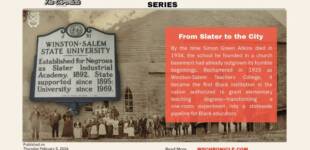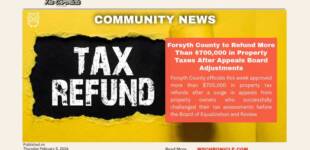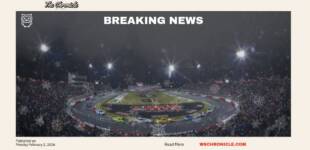Lunch Sparked Two Decades of Racial Solidarity
It started with lunch.
A simple conversation among colleagues over an afternoon meal.
But what resulted was anything but simple. Under the careful leadership of Stephen McCutchan, Sam Stevenson and Carlton Eversley, all Presbyterian ministers, a movement was born that would change the lives of its founders, and countless others who would become a part of what would become the Presbyterian Inter-Racial Dialogue (PIRD).
McCutchan, a native of Monmouth, Ill., launched the dialogue in 1992, inviting Stevenson, the then-pastor of Grace Presbyterian and Eversley, pastor of Dellabrook Presbyterian, to break bread with him 20 years ago. It was a racially tumultuous time both locally and nationally. The white Los Angeles Police officers who beat black motorist Rodney King were found not guilty after a heated trial. Here in the Twin City, several racially charged incidents had left this city divided, McCutchan recalls in his book, “Let’s Have Lunch: Conversation, Race and Community: Celebrating 20 Years of the Presbyterian Inter-Racial Dialogue.”
McCutchan called his fellow pastors to see if the trio could find a solution to salve the community’s racial wounds. Stevenson, a native of tiny Bolton, N.C., had been embroiled in a series of battles with the Presbyterian church, which had remained segregated until the late 1980s, prior to taking the pastorate at Grace. He admits he questioned McCutchan’s sincerity at first.

From left: Revs. Steve McCutchan, Carlton Eversley and Sam Stevenson converse at a local eatery.
“Many African Americans have what we call ‘a healthy suspicion’ (of whites). I was born into Jim Crow, and I grew up in it, so I am colored by all of that,” said the 68 year-old, who has since retired. “…(But) Steve was insistent, and that became convincing. He did not turn away because I was not so responsive to his invitation.”
McCutchan, 71, said he recognized the hypocrisy that existed within the Presbyterian church, where pastors urged congregants to “love thy brother” and yet had little or no interaction with pastors and congregations whose skin color differed from their own.
“I’ve always had a yearning to get to know people who were different from me,” said the grandfather of two, who penned “Let’s Have Lunch” earlier this year in commemoration of the Dialogue’s 20th anniversary.
[pullquote]I’ve always had a yearning to get to know people who were different from me…[/pullquote]The three men put their heads together and formed a plan of action. They created PIRD, which brought together the clergy and members of each of the three congregations regularly for study, introspection and candid conversation. It wasn’t perfect, McCutchan wrote. Some of the members disagreed or argued forcefully. Some just plain quit coming. All had other demands on their emotions and schedules, making it difficult at times for them to attend. The founders admit it wasn’t always easy or comfortable, but they felt strongly that honest conversation was the surest road to building trust and understanding.
Despite setbacks, the group pressed on, and soon attracted the participation of the other Presbyterian churches and leaders in the area, including Rev. Laura Spangler of Lloyd Presbyterian, Daniel Wilkers of Parkway and Stewart Ellis of Trinity. The group’s work spread to the greater community, as members of the Dialogue stood side-by-side to oppose issues like the implementation of the school choice plan, which has been blamed for re-segregating the local school system.
“I think the Dialogue has committed a structure so that when things occur, they’ve got the structure to talk about it,” McCutchan said.
He and Stevenson were deliberate in walking the walk themselves. The two men began meeting twice a month for breakfast at Jimmy the Greek Kitchen, a tradition that has continued for more than 18 years. They bring their wives along for double dates – dinner and a show at Greensboro’s Triad Stage – several times a year. Though he was wary in the beginning, Stevenson said he and McCutchan have become what he calls “good old friends.”
“I am sometimes reminded of how unconscious I am of Steve’s membership in the other group, and that’s great progress,” declared the grandfather of two. “…What we’ve got there is that latitude and freedom to be who you are with the understanding that we’re in this to grow, we’re in this to be more human, and each of us has a role to play in it. It (the relationship) is stronger and deeper than the differences.”
Over the years, the Dialogue’s outreach has grown to include members of the Hispanic, Muslim and Jewish communities, all of whom are well represented at the Habitat for Humanity build that the Dialogue spearheads annually. Eversley, a well-known community activist and advocate for social justice issues, said the relationships that have formed through the Dialogue – which has spawned several interracial groups including The Voices of God’s Children Choir and the Moviegoers – is its most significant contribution to the local community.
 “I think the relationships are the most important thing because they generate everything else,” Eversley said. “I think the Dialogue has become one of the most meaningful ministries for myself and the Dellabrook congregation to have authentic relationships – which means relationships of trust and of mutual self interest – with the predominantly white congregations. So often, those kinds of gatherings are superficial and dishonest … but we’ve been able to forge some real trustful relationships.”
“I think the relationships are the most important thing because they generate everything else,” Eversley said. “I think the Dialogue has become one of the most meaningful ministries for myself and the Dellabrook congregation to have authentic relationships – which means relationships of trust and of mutual self interest – with the predominantly white congregations. So often, those kinds of gatherings are superficial and dishonest … but we’ve been able to forge some real trustful relationships.”
Engaging the entire group in study of both cultures by reading books that deal with race, culture and history helped foster a greater understanding among the early members of the dialogue, Eversley said.
McCutchan, who retired from the pulpit in 2006, has produced five other books and two CDs. He said he created “Let’s Have Lunch” in hopes of preserving the legacy of the group, and encouraging others to start their own movements.
“I want them to understand that if they’re passionate about something and start where they are, surprising things can happen,” he said of his readers. “In a way, it should be a book of hope. It is saying don’t despair because things are not getting any better – you can make a difference, and you make a difference by getting together with someone else. You start talking about it, and it multiplies. Building community is one of the things we can use to tackle those things that divide us.”
“Let’s Have Lunch” sells for $9.99. It is available in paperback and Kindle editions on Amazon.com. For more information, visit www.smccutchan.com.









